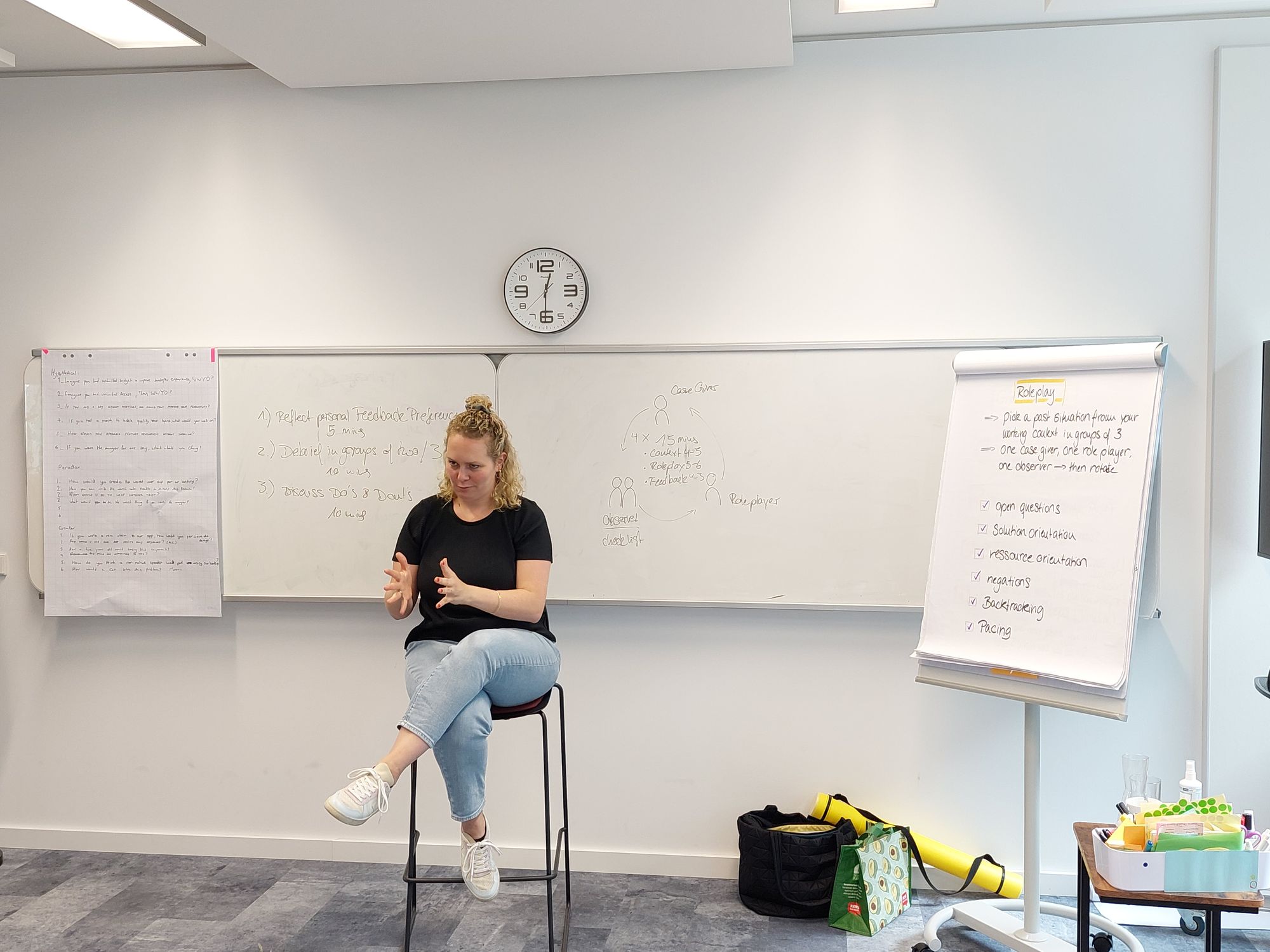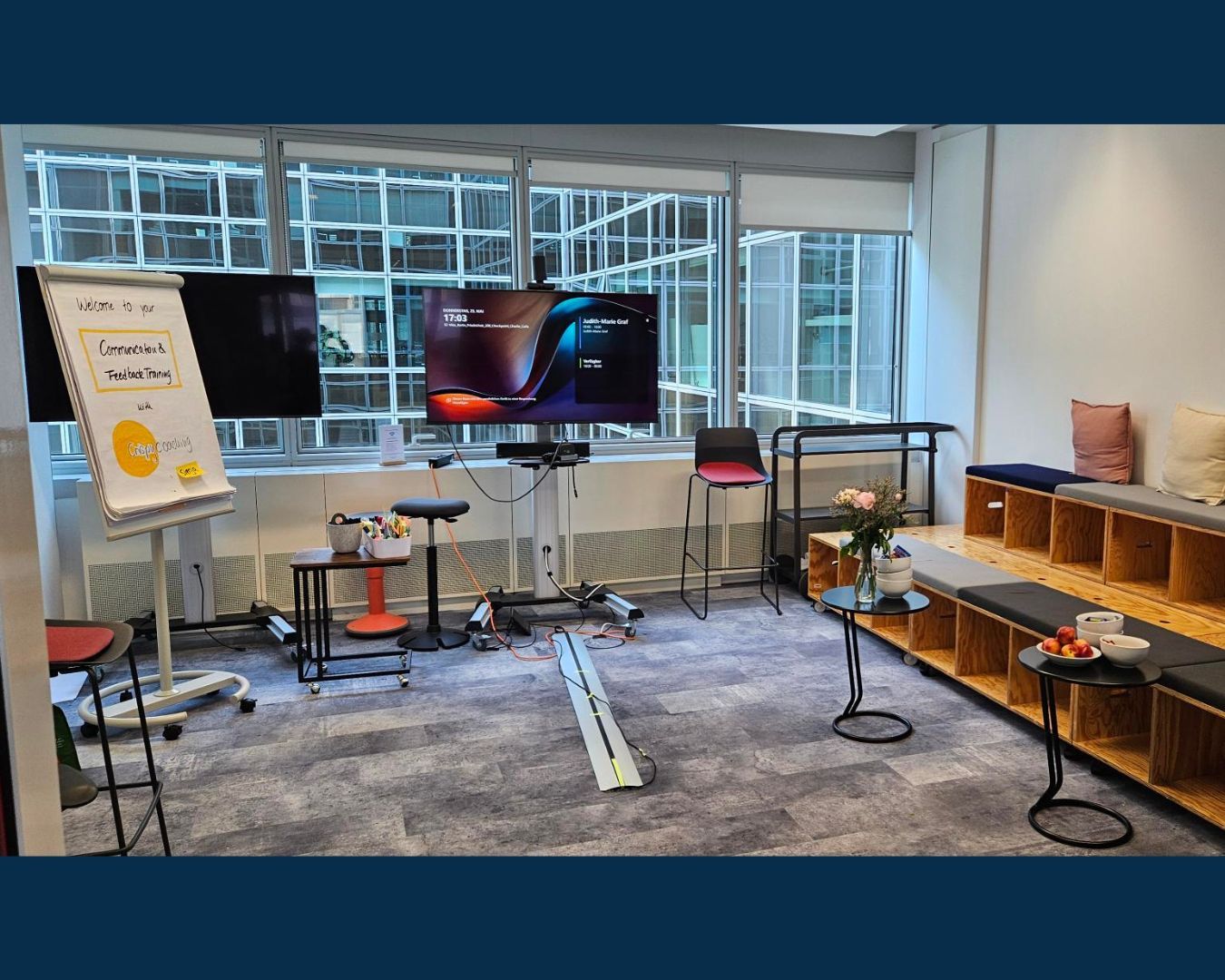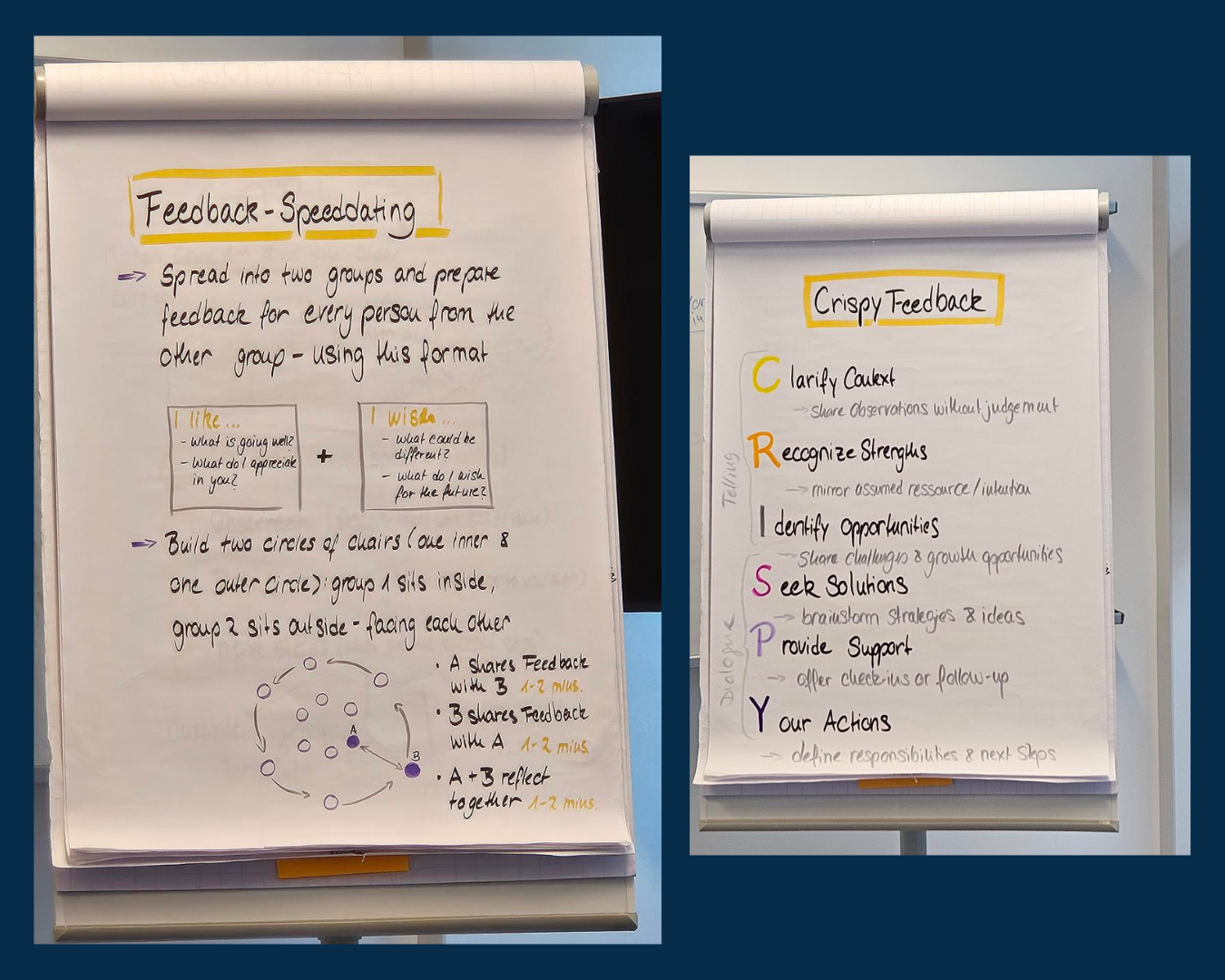Communication & Feedback Training

As a Software Engineer, it is always important to express yourself concisely. Defining technical requirements, writing documentation, writing performant and maintainable code… But what we often lack, is the skill of communication. I mean, it is understandable – most of our working day we spend in front of Computers, communicating only with IDEs, terminals and consoles. Giving the right feedback to a colleague, for example, can be unexpectedly hard. It often ends up blaming others’ code, finger pointing, and heated atmosphere in the team or company. Au contraire, being too polite and dishonest also doesn’t help someone improving themself.
Written by Miroslav Dzunic, Senior Software Engineer
About the Training
In May 2024, I attended an insightful training on Communication and Feedback held by “crispycoaching” and organized by DKB Code Factory. I’m glad that our company recognized this need and gave us the opportunity to also develop soft skills needed for everyday work.

It was a two-day interactive training session, where we were often divided into smaller groups, and doing workshops. Great opportunity to get to know colleagues from other departments and projects. Some of us are Backend, Frontend, App Developers. Different levels of experience: Junior, Senior, Engineering Managers. All eager to learn how to give the best feedback, how to communicate the problems efficiently and not being personal.
Day 1
From the very beginning, we identified the same issue we all have: if someone approaches us with a problem, we immediately jump into solving it. In the end, nothing is wrong – it is our engineering nature that thrives us to do so. This also means, one more task added to our list, colleague shifting the problem, and not learning from doing it. “Give man a fish and you feed him for a day; teach a man to fish and you feed him for a lifetime”. This applies universally, but as a senior colleague, a manager or an executive, you want to coach your employees, steer them to the solution, and not solve their problems yourself immediately. The training gave us the techniques to ask right questions (for example, open-ended questions), be an active listener, mind all kinds of communication (non-verbal, paraverbal, verbal…).
Day 2
The second part of the training about feedback showed us that even if we don't know someone for a long time, it is possible to give quality feedback. You can still share observations without judgements, recognize someone’s strengths and opportunities. Define solutions together, provide support and clarify next steps. So next time, when giving feedback, restrain yourself from being personal, finger pointing, “wall of shame”, etc. Focus on facts, and just practice. Everyone will profit from this.

Conclusion
Finally, soft skills are trainable - similarly as applying new technology in your team, you just need to be aware and start thinking about them in your daily work. Therefore, I can only recommend you participate in any future trainings organized by CoFa, to improve the culture of communication and feedback and for personal growth. Those trainings can be hard in the beginning for us tech people, but after some practice, it becomes more natural. And it feels great – you don’t think of yourself as an individual contributor, instead, a part of the team.